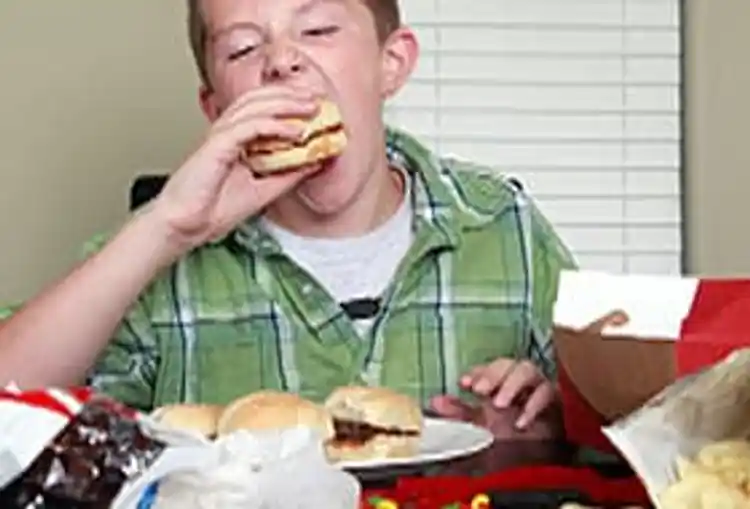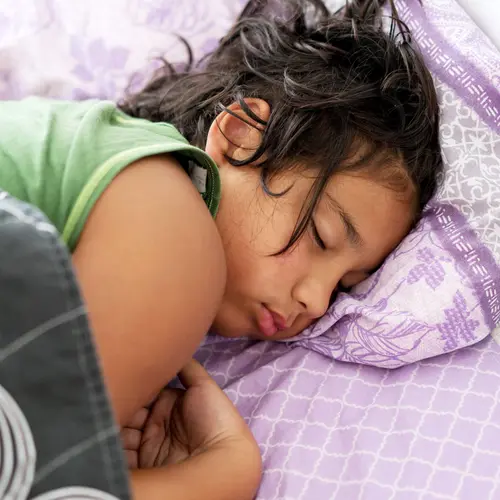Teenage Weight Loss

Hide Video Transcript
Video Transcript
Narrator
How can I hinder my teen's weight loss? David Ludwig, MD
Well, one of the most common problems that I see with the parents of adolescents is that they have raised their children without limits early in life, at a time when limits are absolutely perfectly appropriate, um, because if a child doesn't learn to eat from his parents, he's going to learn habits from our fast food culture, television advertising and other unhealthy influences around. Then if he's like most American children, he'll develop atrocious eating habits, a weight problem, and then by adolescence could be at risk for type II diabetes, or fatty liver or high cholesterol. At that stage, the parents oftentimes understandably get very frightened, especially if they hear from the child's pediatrician that a serious medical problem could, could develop. At that point though, they oftentimes make a bad situation worse, by trying to clamp down with excessively restrictive or coercive parenting practices, like nagging, criticism, even punishment, excessively restricting some foods or pressuring a child to eat other foods. These tend to work, if they do, only for a short term, and then rapidly backfire, and most importantly, they take a toll on the parent-child relationship. Ultimately, the most powerful way that a parent has to influence a child's behavior is through the strength of the parent-child relationship. As long as a teenager and a parent are putting most of their energy into fighting each other, there's very little energy left over to actually deal creatively with the weight problem. So the first step is to back off of that. And initially, a teenager's behavior might get a little worse, because suddenly, they are used to the parent acting as the food police, keeping control of them, and so when you take of that level of control, they may go a little bit wild for a few days or a few weeks. But before long, that child begins to realize that if she acts in a way that is self destructive, she's ultimately going to be the one to suffer the greatest consequences. And it's difficult for a teenager to really understand that as long as the parent is there over controlling the situation. So, we first aim to diffuse that conflict, of course while, all the while supporting the parent to understand the appropriate ways that they can be involved, and also working with the adolescent to um realize the long term consequences of self destructive eating habits 
